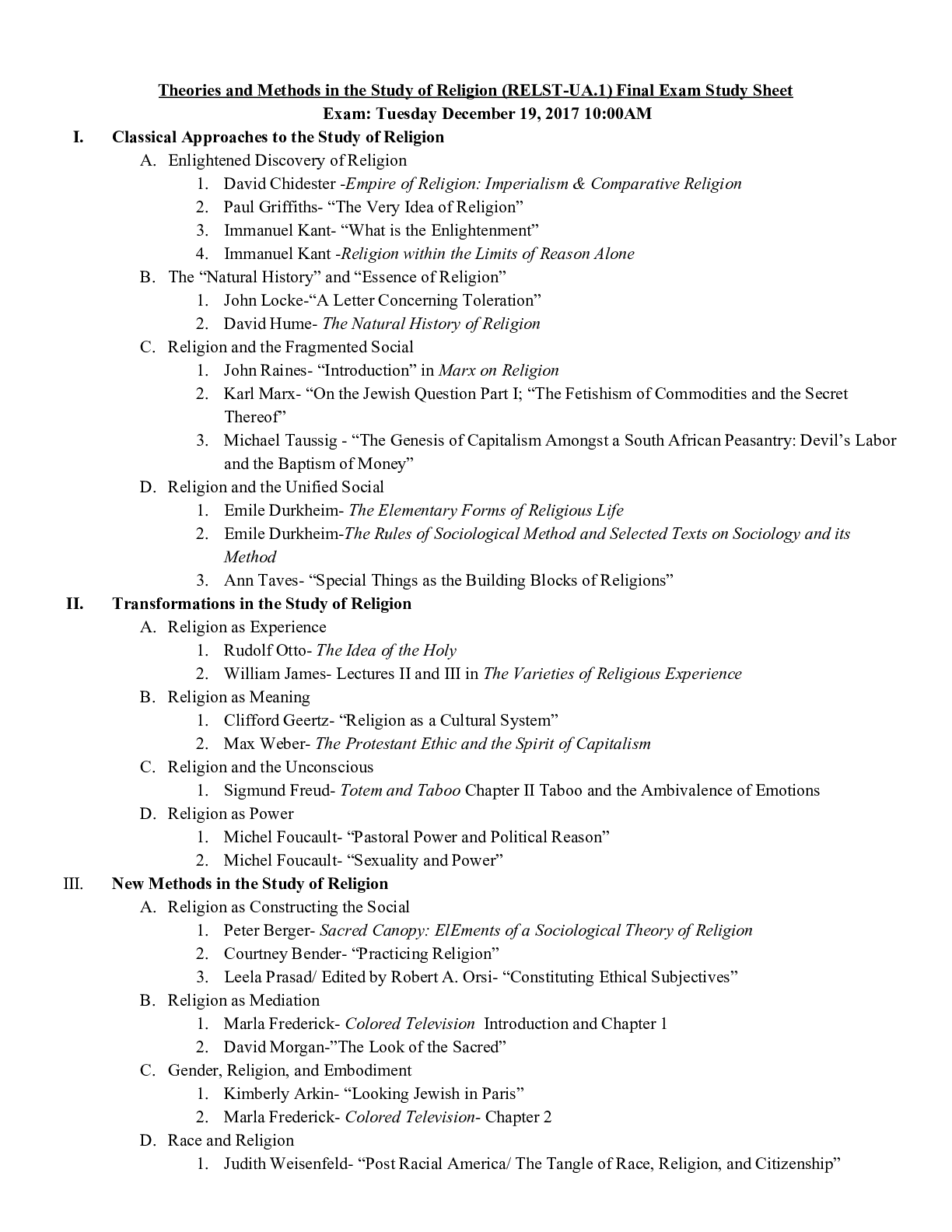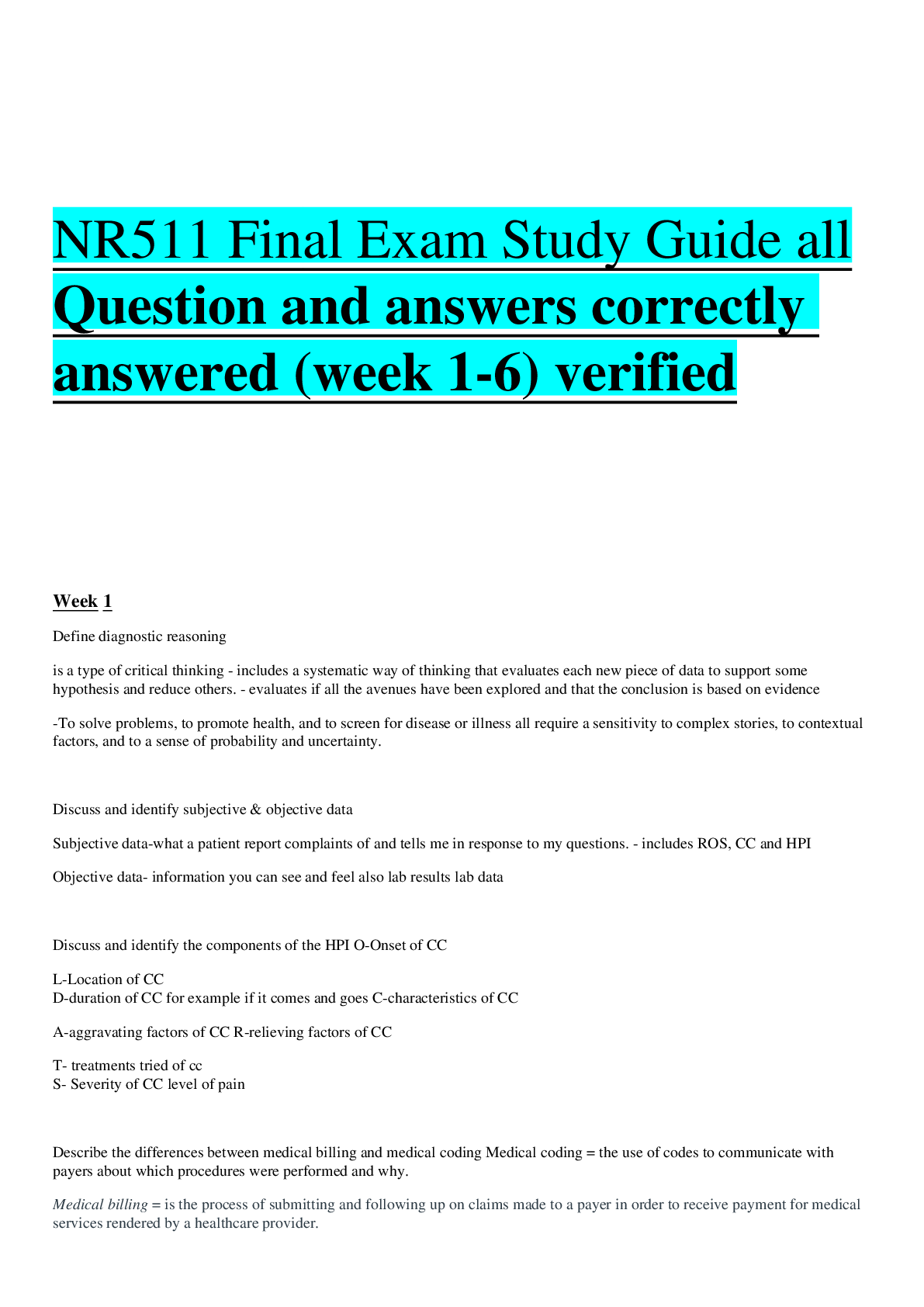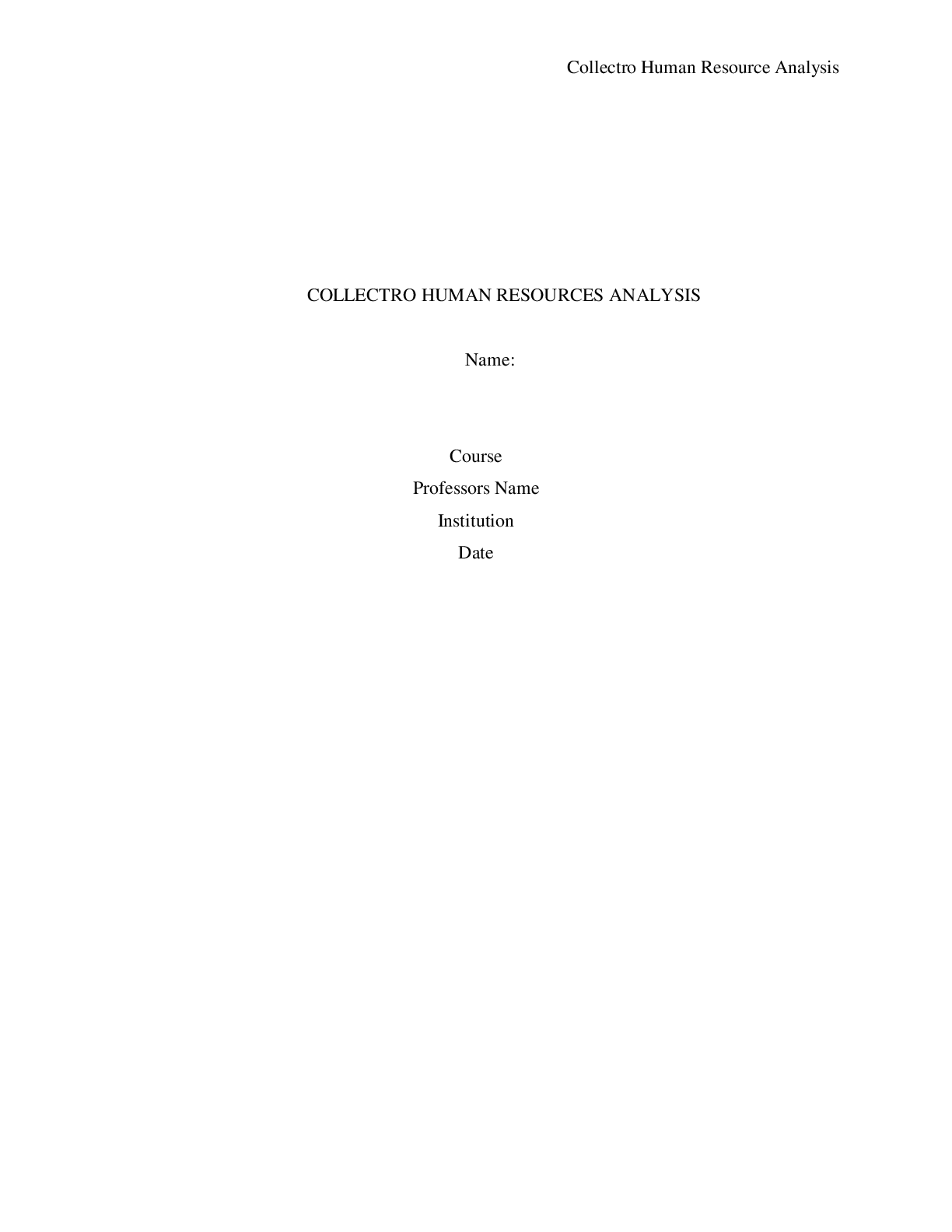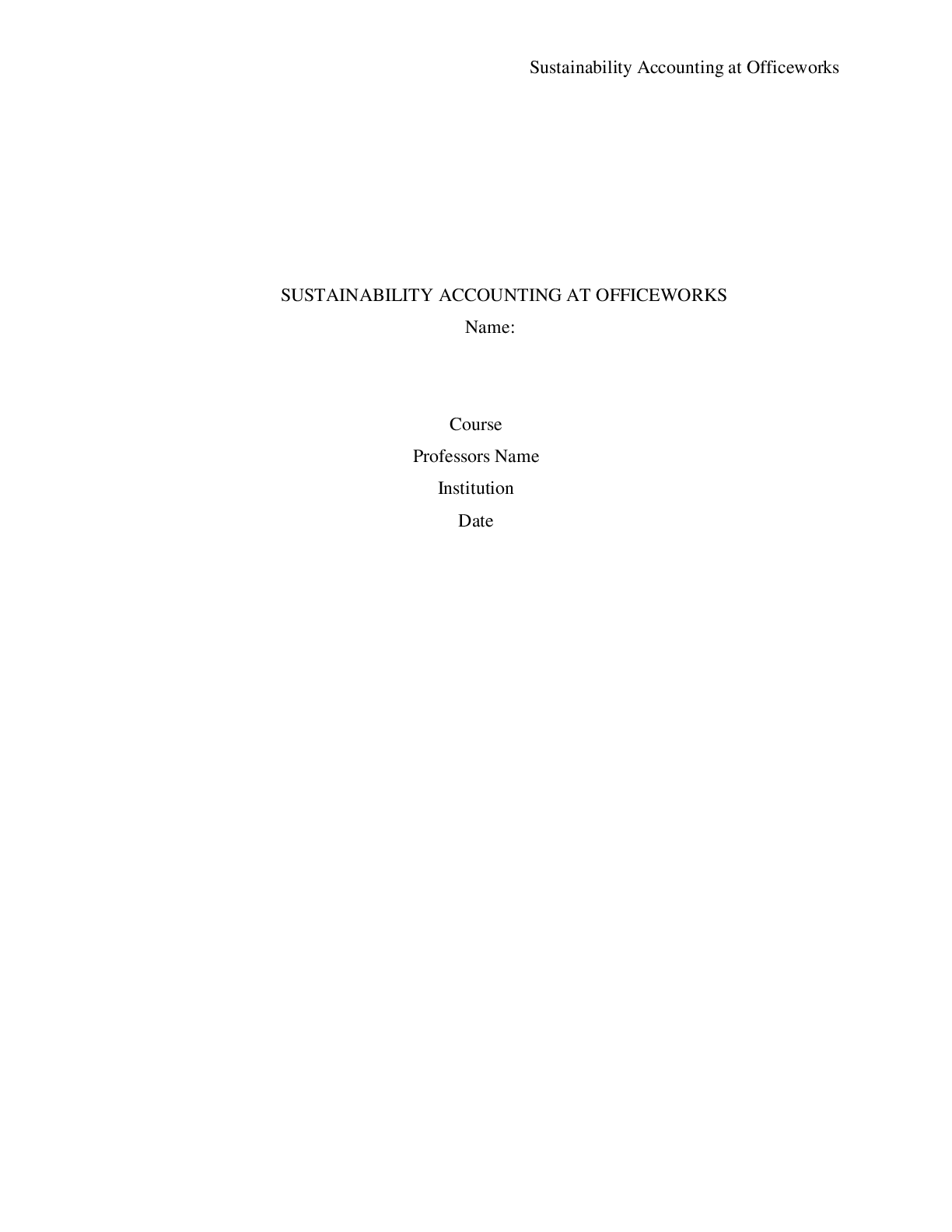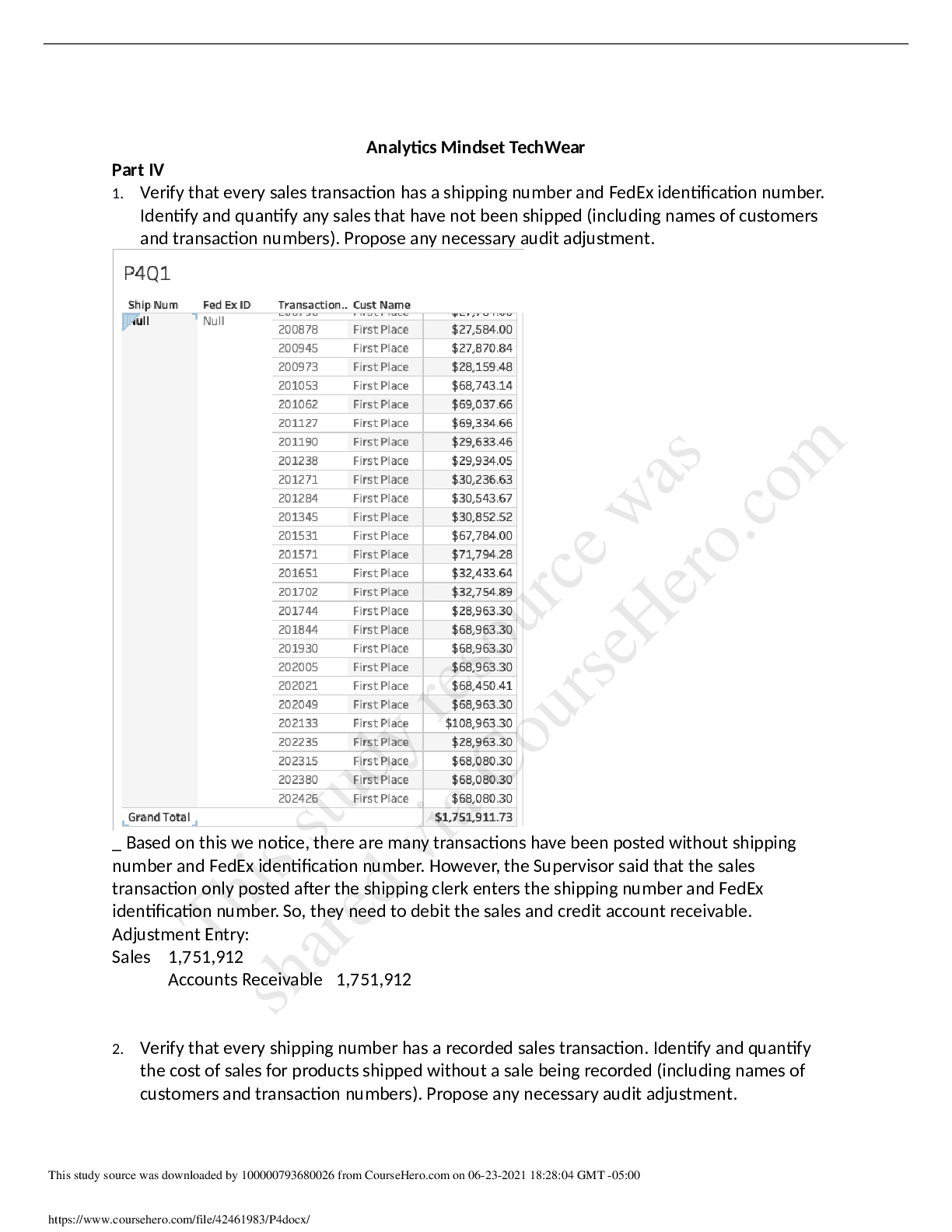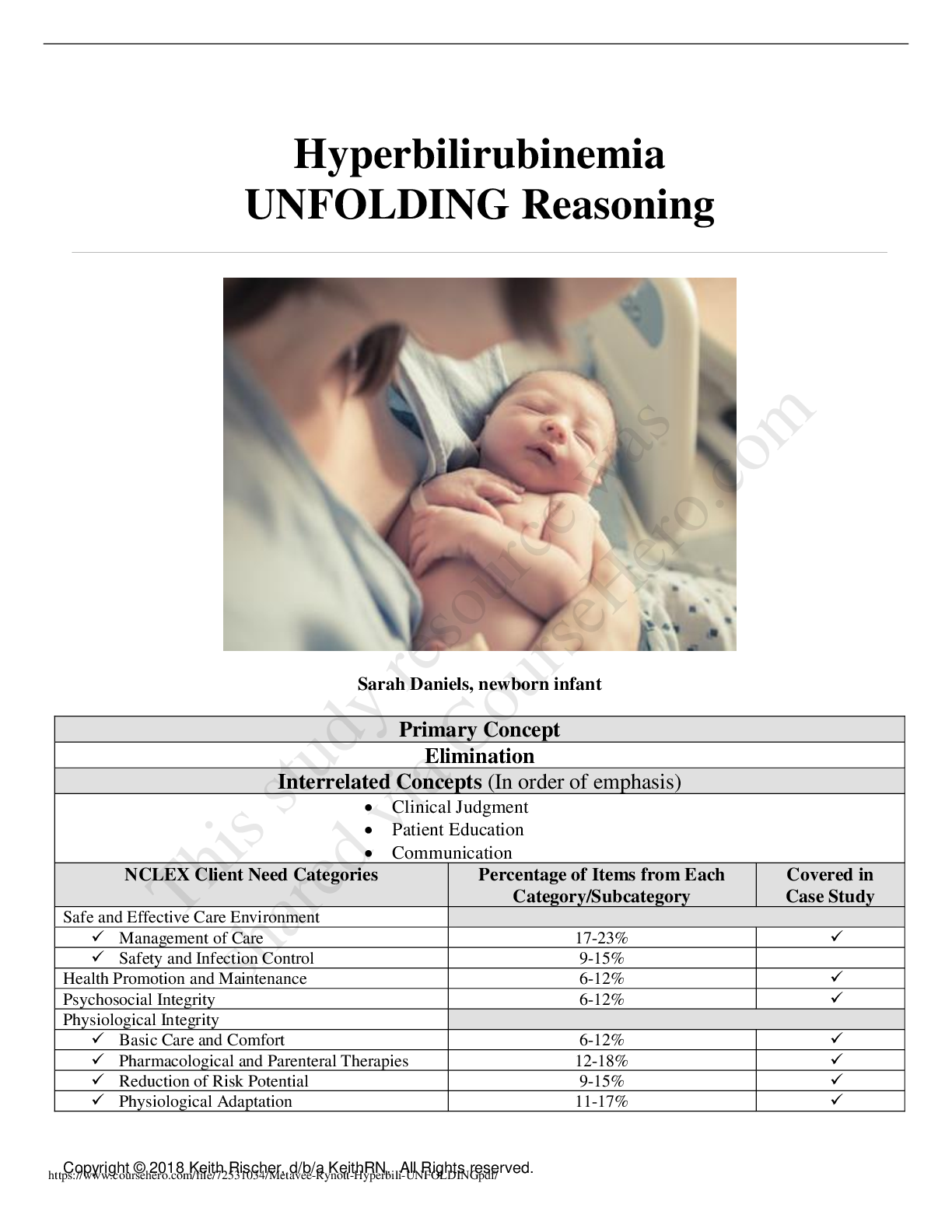Management > CASE STUDY > MGT 302 Final Exam Study Guide ALL ANSWERS 100% CORRECT SPRING-FALL 2022 GUARANTEE GRADE A+ (All)
MGT 302 Final Exam Study Guide ALL ANSWERS 100% CORRECT SPRING-FALL 2022 GUARANTEE GRADE A+
Document Content and Description Below
1. Tacit Knowledge- Info that is intuitive and difficult to codify in writing. gained from experience/interaction. shared knowledge might be dispersed throughout company 2. Codified Knowledge- Info e... asily captured/shared in the form of text, tables, or diagrams. can't undo. Ex: Product Specifications, Scientific Formula, and Computer Program 3. First Mover Advantages- are the economic and strategic advantages that accrue to early entrants into a market/industry 4. Pioneering Costs- costs that an early entrant has to bear that a later entrant can avoid, such as the time and effort in learning the rules, failure due to ignorance, and the liability of being a foreigner. Costs can arise when the business system in a foreign country is so different from that in a firm’s home market that the enterprise has to devote considerable effort, time, and expense to learning the rules of the game. costs include the costs of business failure if the firm, due to its ignorance of the foreign environment, makes major mistakes. costs also include the costs of promoting and establishing a product offering, including the costs of educating customers. 5. Externalities- knowledge spillovers. that firms can benefit from such externalities by locating close to their source 6. Strategic Commitments- such as rapid large-scale market entry, can have an important influence on the nature of competition in a market. 7. Entry modes: a. Exporting- low risk to test the waters, but also need to consider costs i. Advantage- avoids the cost of establishing manufacturing operations in the host country. Helps a firm achieve experience curve and location economies. Minimize risk and investment. Rapid speed of entry. ii. Disadvantage- if it is cheaper to make somewhere else then exporting a local good isn’t good. High transportation cost especially for bulk. Tariff barriers make exporting hard. To get around these problems you need to se up wholly owned subsidiaries in foreign nations to handle local marketing, sales, and service. Need standard products. Payment concerns. Exchange rate risk iii. Direct- you deal with all phases of the sale and transfer of the product iv. Indirect- hiring someone else for logistics. Increase sales with little effort but you lose the control and personal relationship b. Turnkey Projects- contractor agrees to handle every detail of the project for a foreign client, including the training of operating personnel then “hand over the key.” i. Advantage- can earn great economic return from assets. Less risky than conventional FDI. ii. Disadvantage- firm that enters the deal will have no long-term interest in the foreign country. Firm that enters the project with a foreign enterprise may create a competitor. Also if a firm has technology that it the competitive advantage and gives it away through the project then they lose that competitive advantage to competitors. c. Licensing- the owner of the intellectual property allows another firm to use the legal rights for a specific period of time in exchange for payment. Coke license to apparel companies. i. Advantage- reduce cost and risk of establishing foreign enterprise. Establish physical presence. Overcome trade and investment barriers. Rapid speed of entry. Reduces exposure to political risk ii. Disadvantage- difficult to maintain control over assets and knowledge. Partners can become competitors. Damage to firms reputation. Income dependent on licensee’s performance. Licensee earns the majority of the profit. Monitoring costs. Narrow iii. Cross-licensing agreements- 1. enable firms to hold each other hostage, which reduces the probability that they will behave opportunistically toward each other. 2. a firm might license some valuable intangible property to a foreign partner, but in addition to a royalty payment, the firm might also request that the foreign partner license some of its valuable know-how to the firm d. Franchising- one firm allows another the right to use the entire business systems in exchange for fees, royalties or other compensation. Worldwide. McDonalds i. Advantage- quick, low cost entry in a lot of locations. Reduce costs and risk. Expansion of brand name and mkt reach. Can leverage the franchisees’ local knowledge ii. Disadvantage- can’t assure quality control and operating standards. Can ruin franchisor’s image. Conflict and disputes likely. May create future competitors. iii. Master Franchise Agreements- subsidiary at least partly owned by the firm. Joint venture between McDonalds and a local firm. Each location has a manager e. Strategic Alliance- bring together 2 or more skills. Better off together i. Types: [Show More]
Last updated: 1 year ago
Preview 1 out of 13 pages
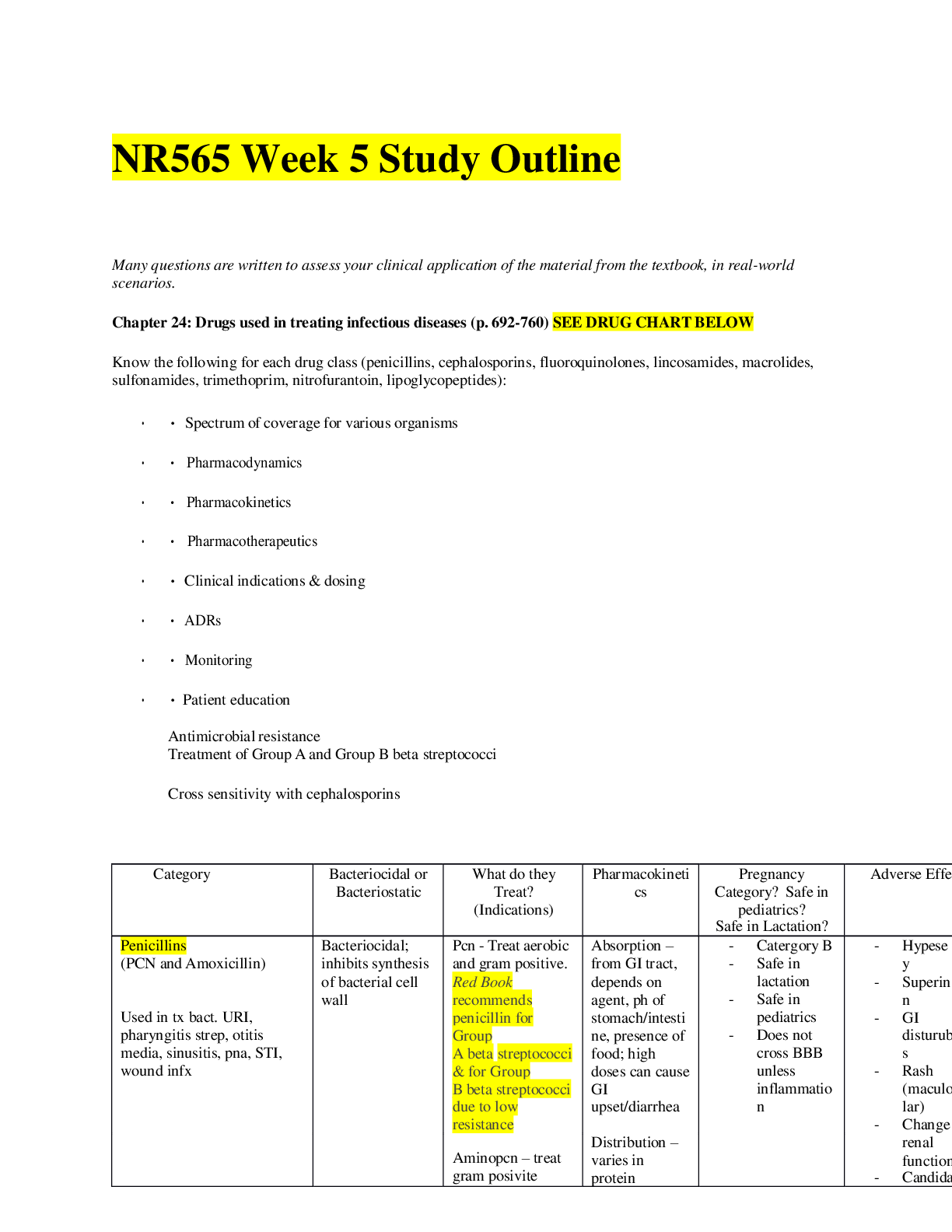
Reviews( 0 )
Document information
Connected school, study & course
About the document
Uploaded On
May 23, 2022
Number of pages
13
Written in
Additional information
This document has been written for:
Uploaded
May 23, 2022
Downloads
0
Views
31

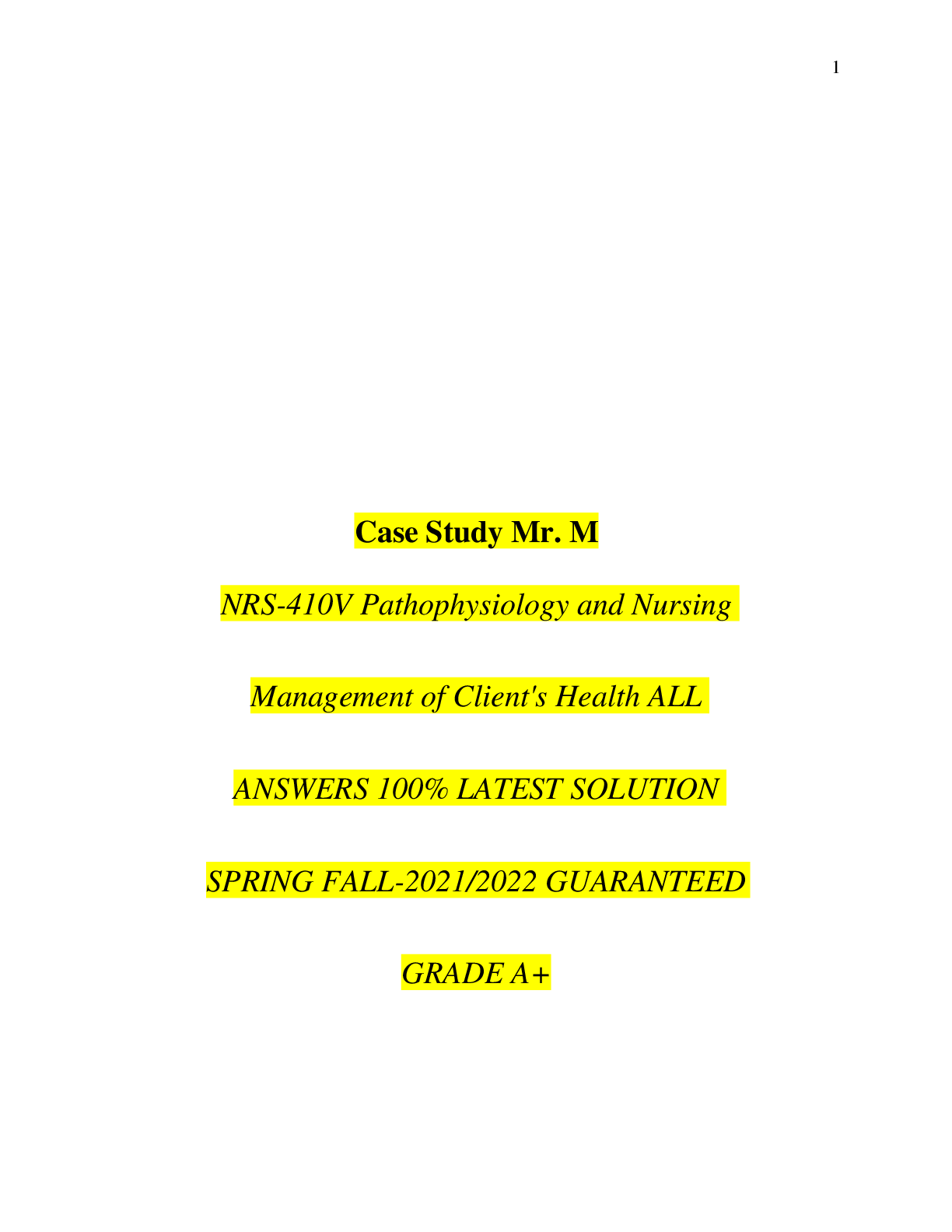


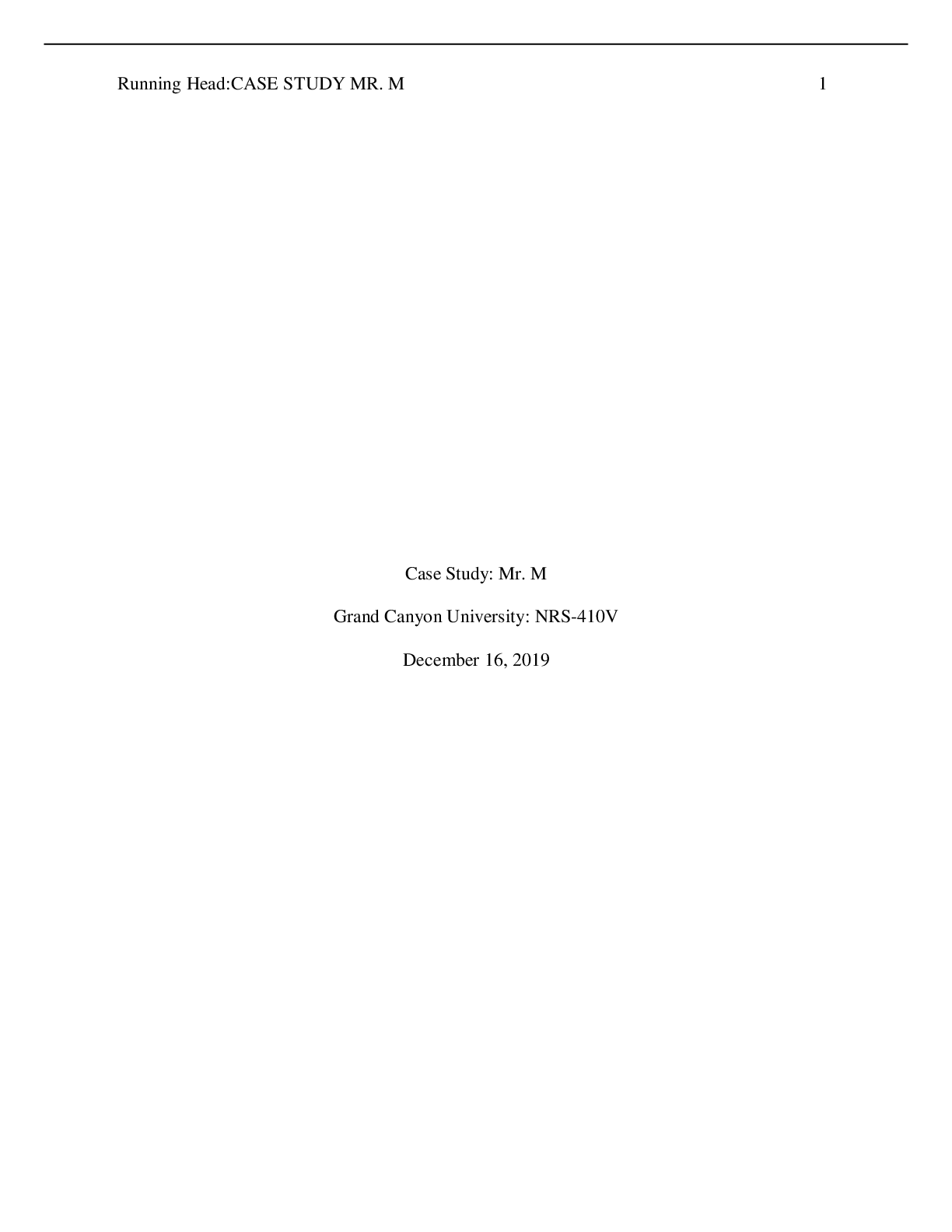
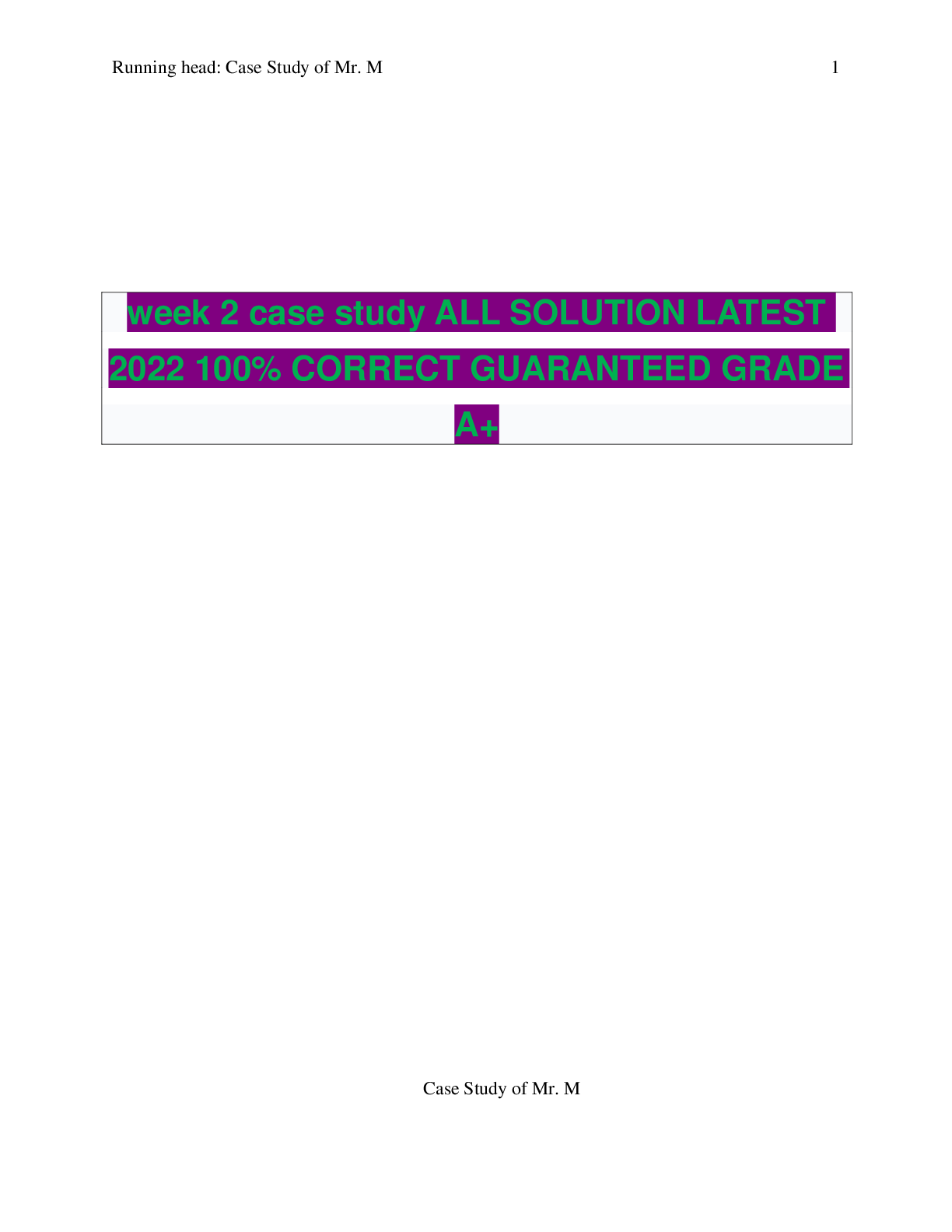

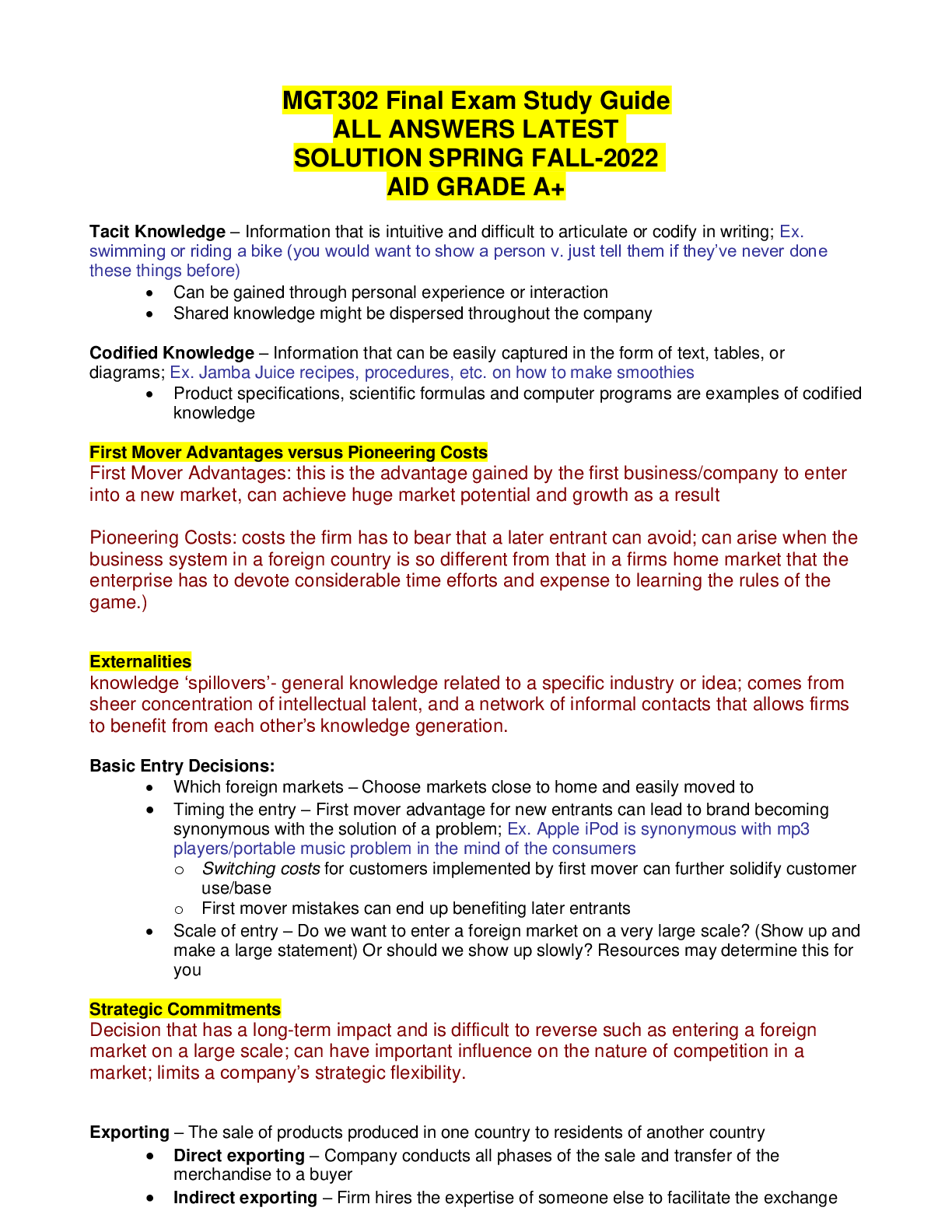
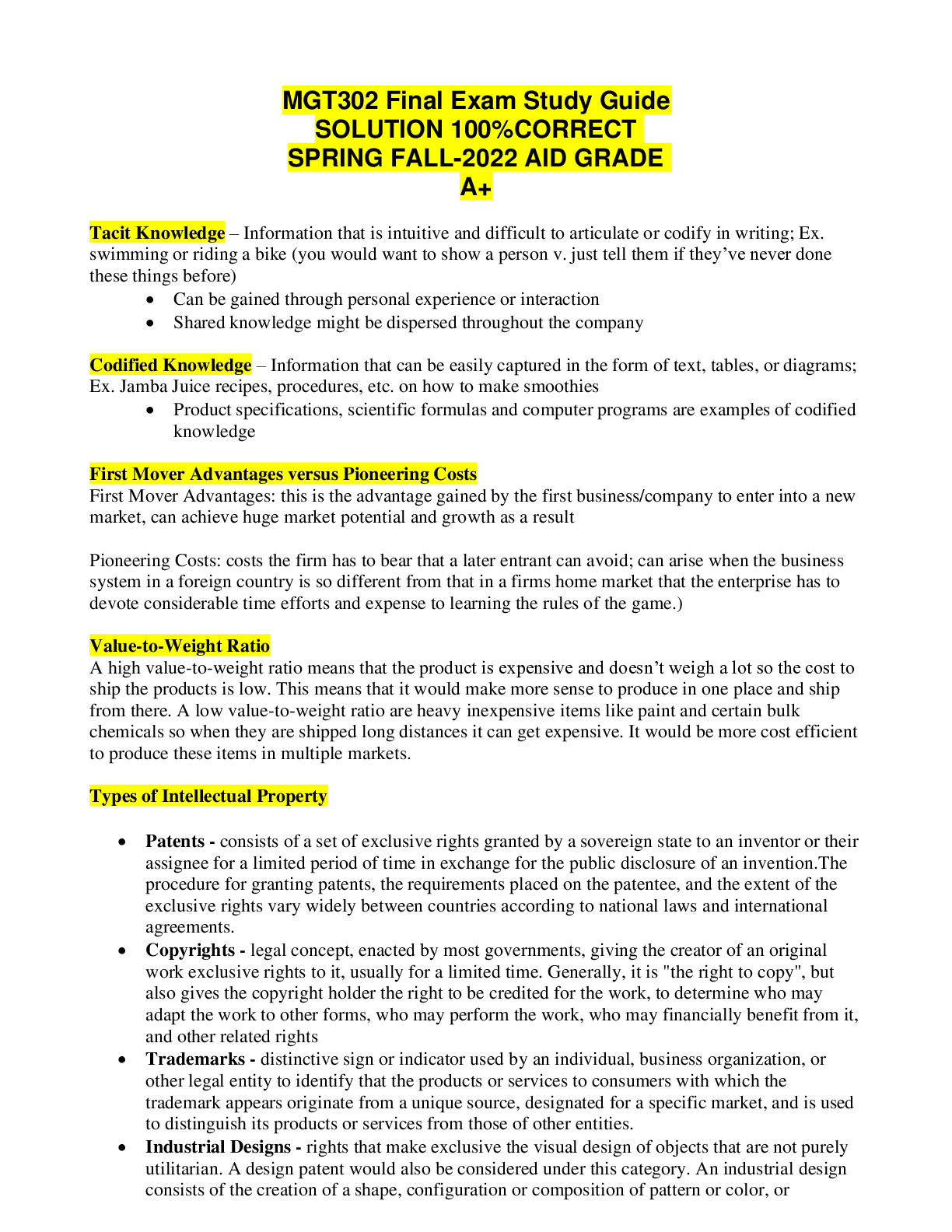
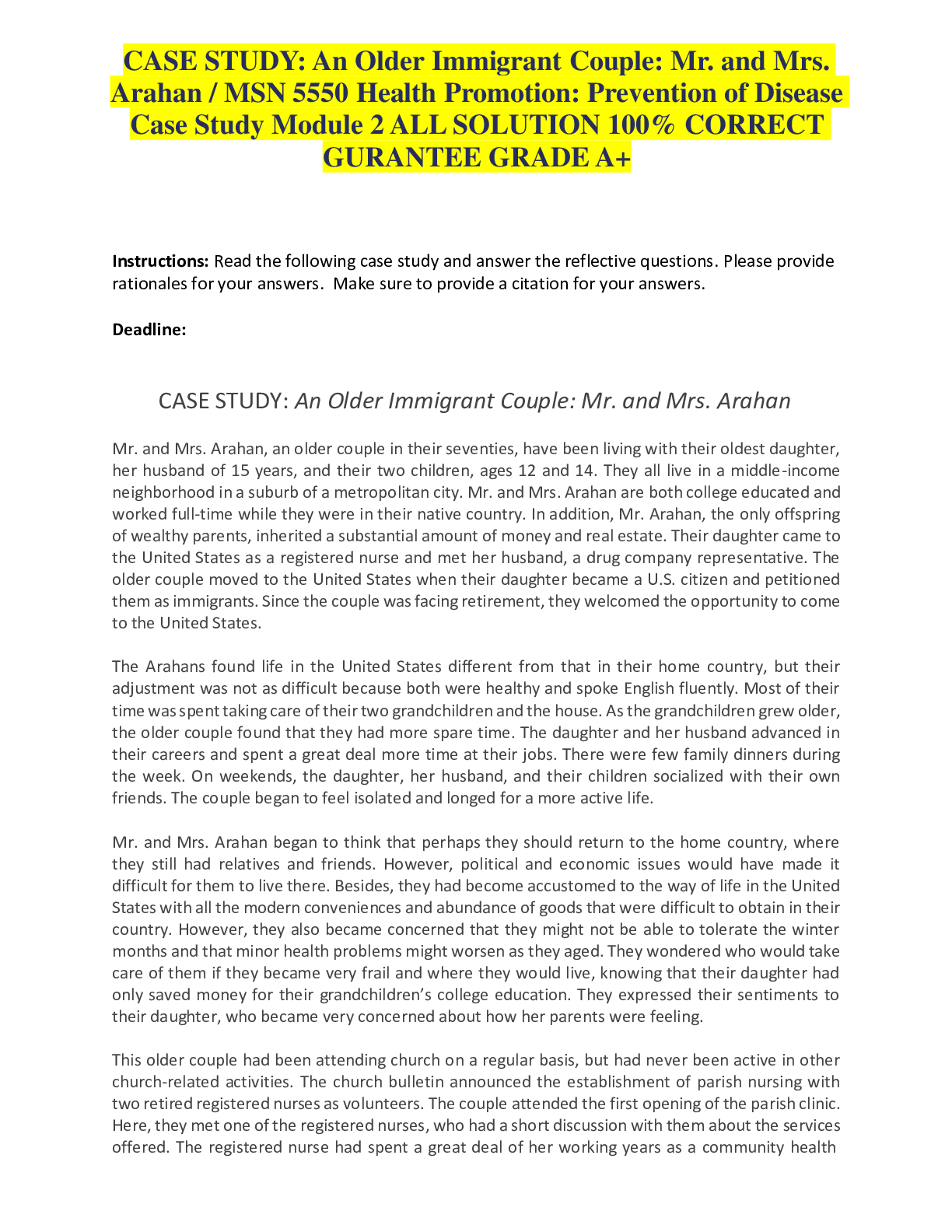

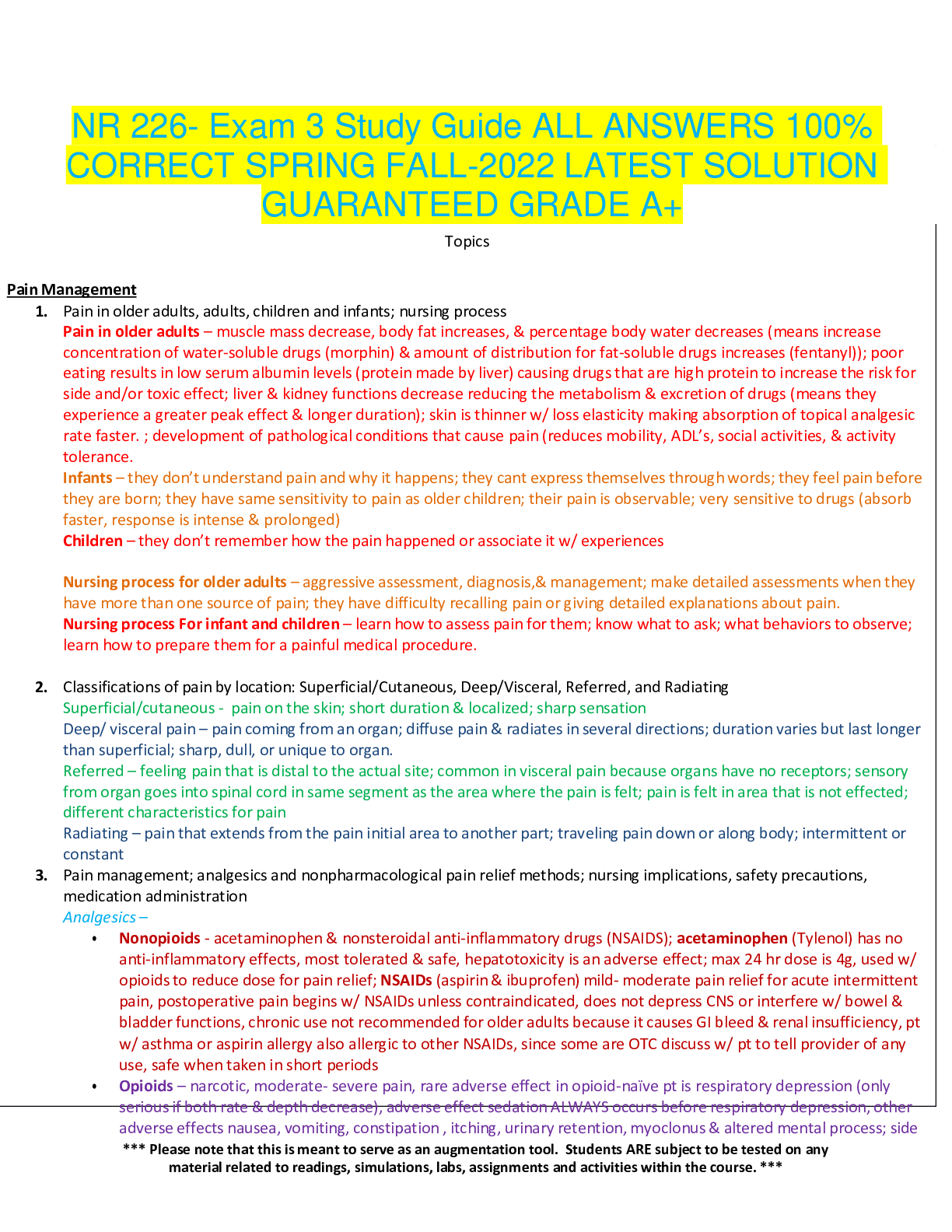


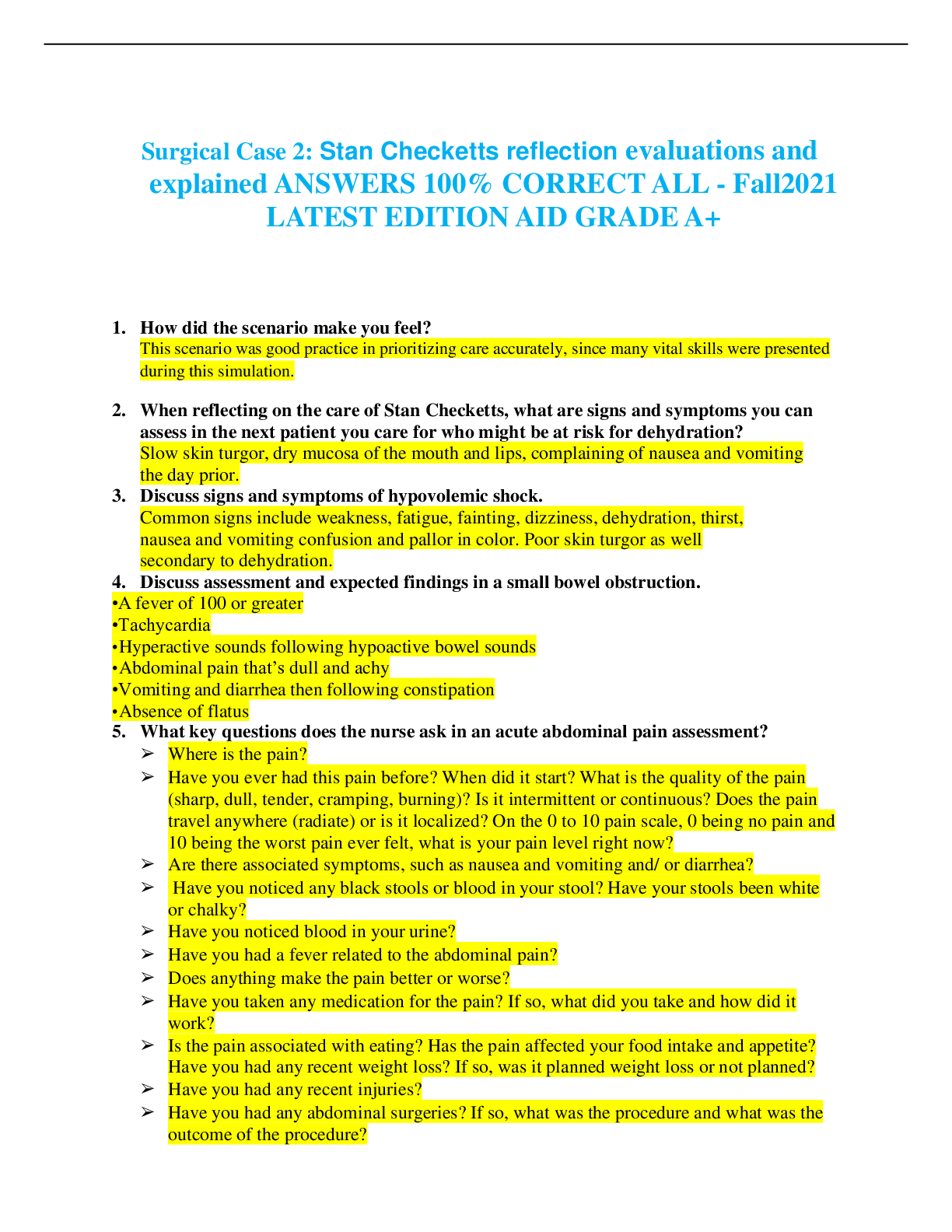
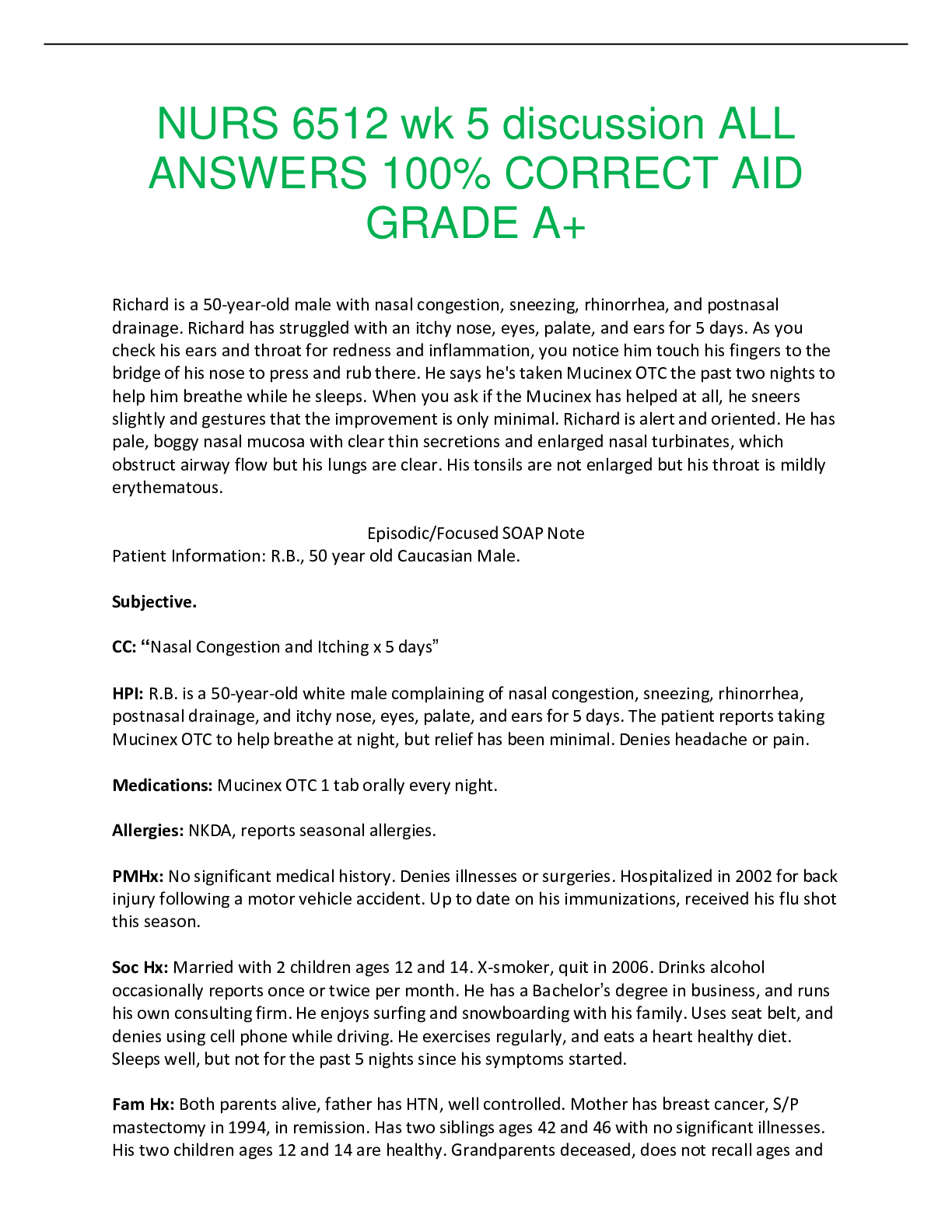
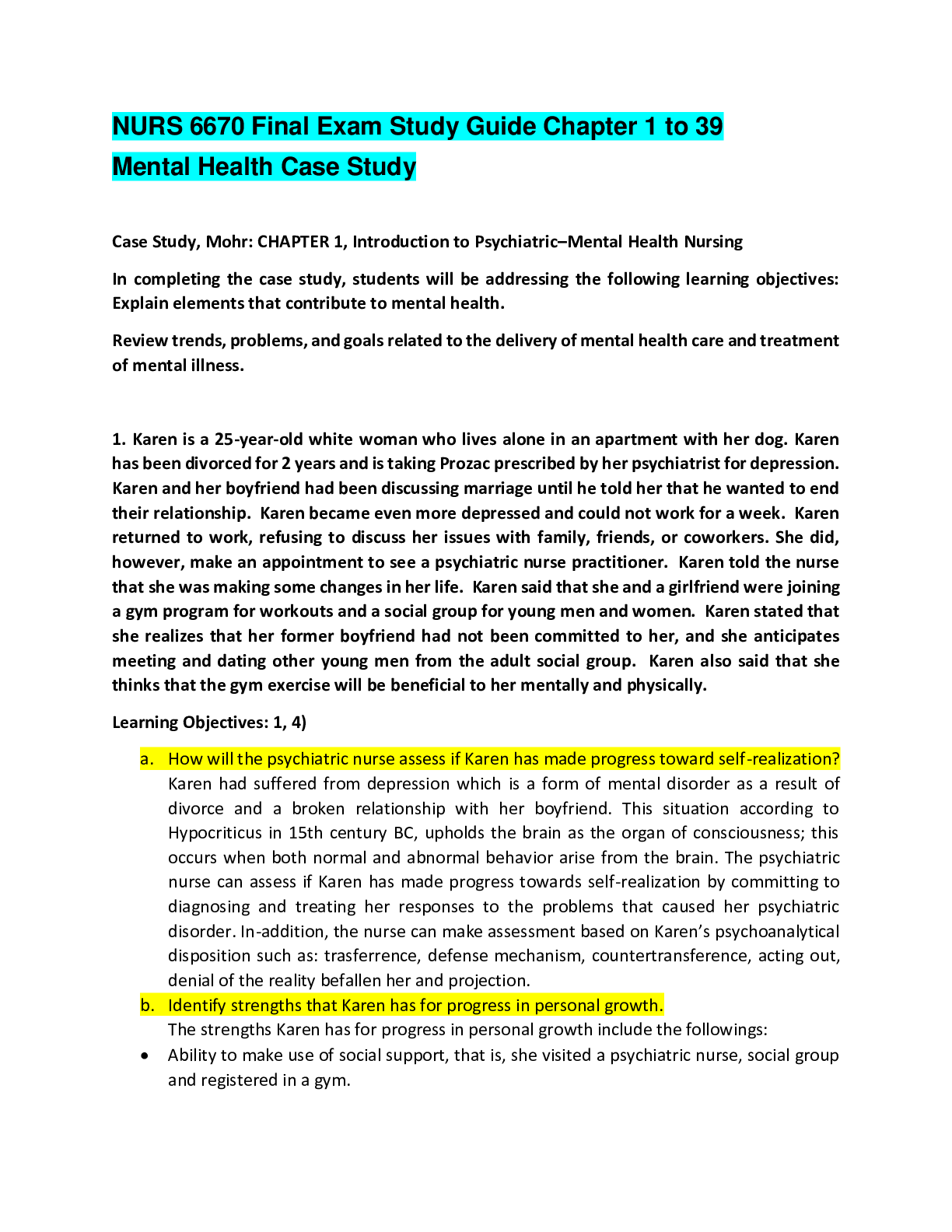
.png)


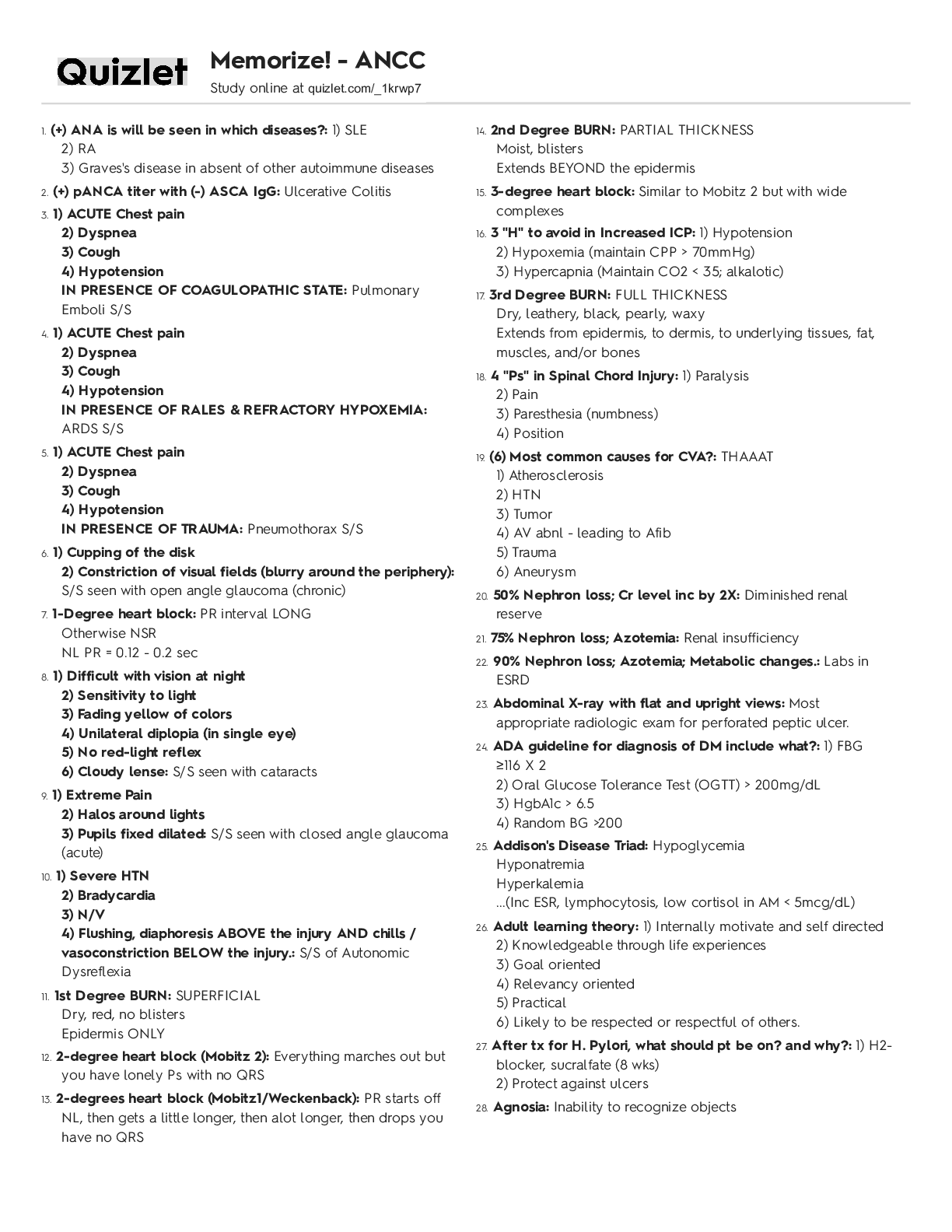
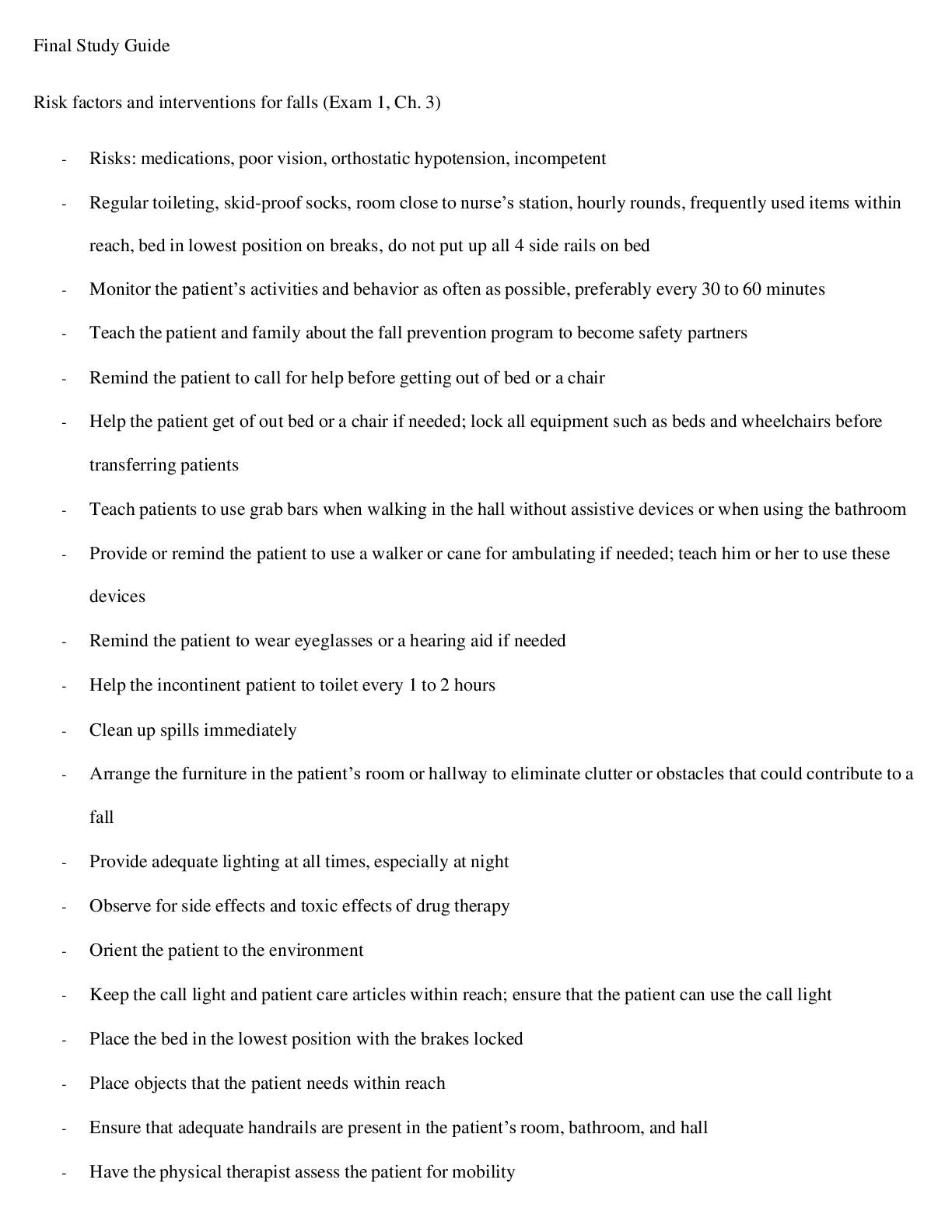

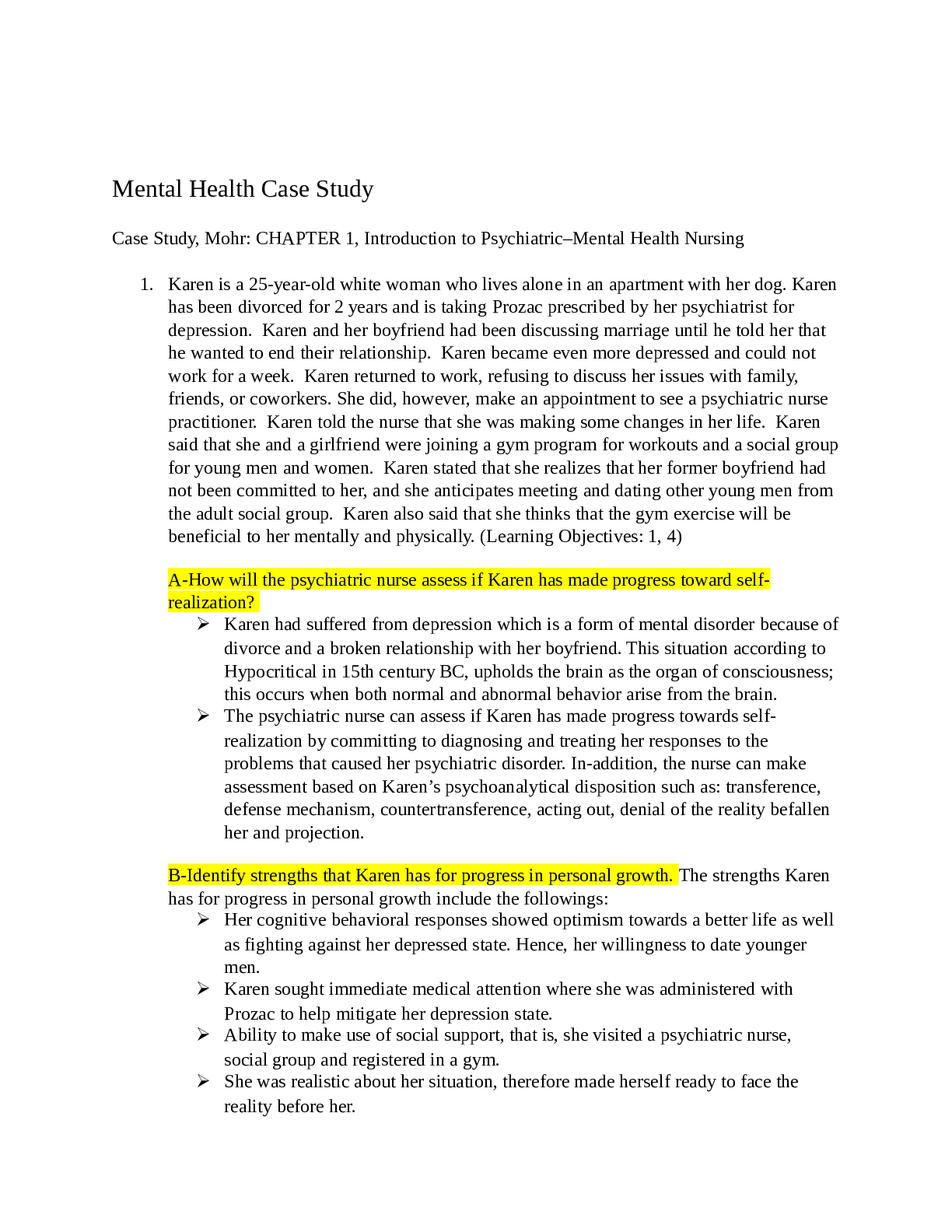
.png)
